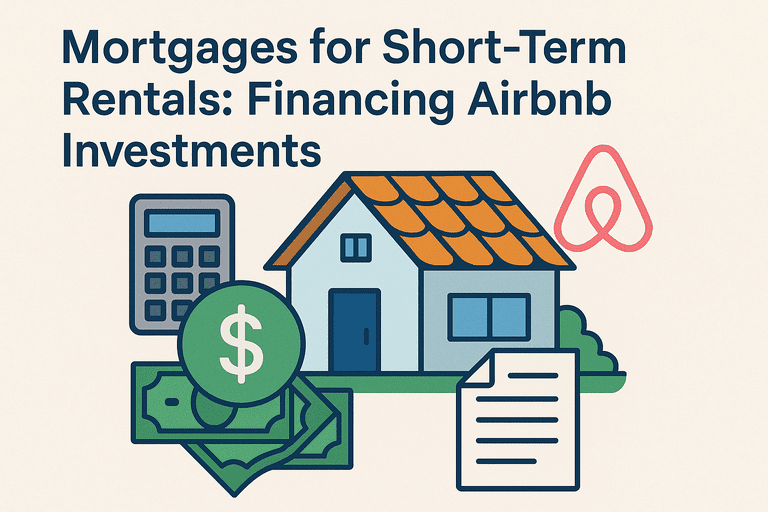Investing in a property for short-term rentals, such as Airbnb or vacation homes, has become increasingly popular for homeowners and entrepreneurs seeking supplemental income. Unlike traditional long-term rentals, these properties require a strategic approach to financing. Understanding short-term rental mortgage options, vacation rental loans, and Airbnb property financing can help investors maximize returns and manage risks effectively.
Understanding Short-Term Rental Mortgages
A short-term rental mortgage differs from conventional home loans because lenders evaluate both personal financials and the potential rental income. Many traditional lenders consider short-term rental properties higher-risk, so specialized financing options may be necessary.
These loans often come with:
Slightly higher interest rates than primary residence mortgages.
Stricter credit score requirements.
Minimum down payments that can range from 20–30%.
Investors should compare lenders to find terms that align with their financial goals and property plans.
Types of Vacation Rental Loans
There are several loan options tailored for short-term rental investors:
1. Conventional Investment Property Loans
These loans are designed for properties not intended as a primary residence. While interest rates may be higher, they provide flexibility for Airbnb and vacation rentals.
2. Portfolio Loans
Lenders may offer portfolio loans that remain on their books rather than being sold to the secondary market. These can accommodate unique situations, including irregular rental income or multiple properties.
3. FHA and VA Loans (Limited Use)
Some government-backed loans allow for short-term rental use if the owner occupies the property for part of the year. This can be a good option for hybrid investors who want both personal use and rental income.
Evaluating Airbnb Property Financing
When pursuing Airbnb property financing, investors should consider:
Projected Rental Income: Lenders often require evidence of potential income, including comparable occupancy rates in the area.
Local Regulations: Cities may limit or restrict short-term rentals, affecting your ability to generate income.
Insurance Requirements: Short-term rentals may require specialized insurance policies covering frequent guest turnover and liability.
Accounting for these factors ensures that financing aligns with your investment strategy.
Benefits of Financing Short-Term Rentals
Investing in short-term rentals through a specialized mortgage offers several advantages:
Income Generation: Properties can generate higher rental income than traditional long-term rentals.
Portfolio Diversification: Short-term rentals provide a way to diversify real estate investments.
Property Appreciation: Investors benefit from both rental income and long-term home value growth.
However, investors should also account for higher turnover costs, potential vacancy periods, and management responsibilities.
Tips for Securing a Short-Term Rental Mortgage
Maintain Strong Credit: Lenders prioritize borrowers with excellent credit scores for investment properties.
Prepare a Detailed Business Plan: Demonstrating income potential, market research, and management plans increases lender confidence.
Consider a Larger Down Payment: Reducing risk for lenders can improve loan approval and terms.
Work with Experienced Lenders: Specialized lenders understand the nuances of Airbnb property financing and investment strategies.
Conclusion: Smart Financing for Airbnb Success
Successfully financing a short-term rental requires careful planning, understanding your mortgage options, and evaluating local regulations. By exploring short-term rental mortgages, vacation rental loans, and Airbnb property financing, investors can secure the right funding, optimize income, and grow a profitable rental portfolio.
For more resources, mortgage calculators, and investment tips, visit CalculatingAMortgageLoan.com.
Sources:
